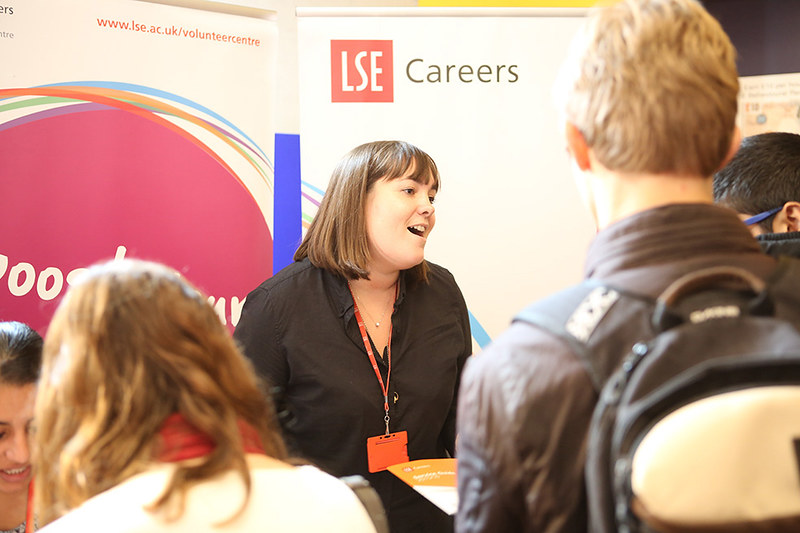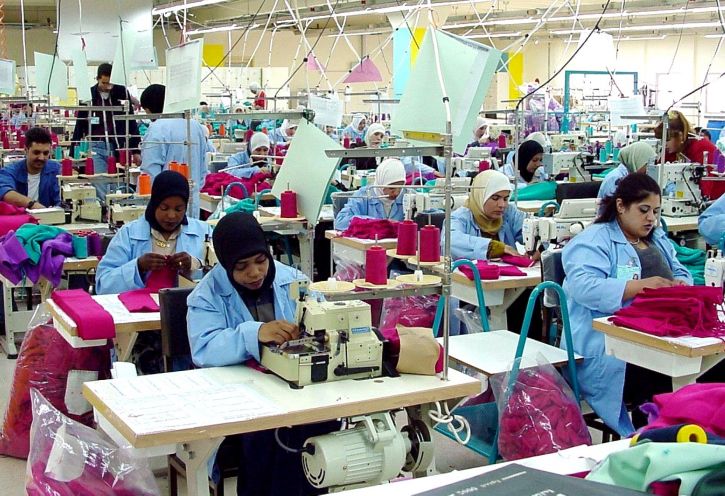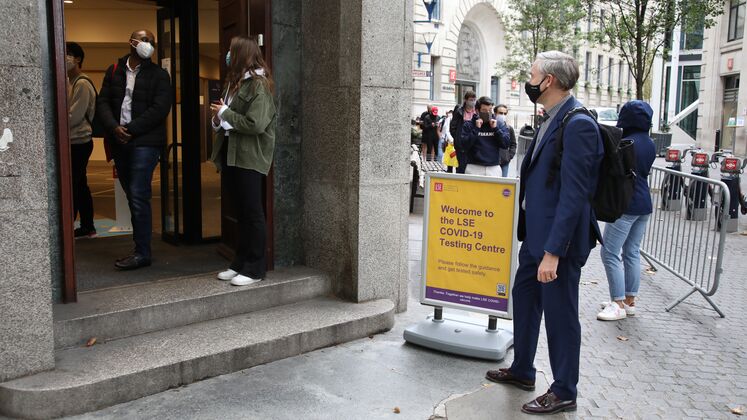MSc Health and International Development student and Student Ambassador, Dr Harikeerthan Raghuram, writes about the different services offered by LSE Careers.
LSE has over 11000 students from over 140 different countries studying in over 20 different departments. Surely, it seems like a mammoth task to assist with the career of each individual. However, from my experience as a student at LSE, the LSE Careers Team manages this task with flexibility, agility, and a combination of large-scale events and tailored events. These include career fairs, panel events, seminars, one-on-one sessions and much more. In this article I will take you through these one by one.
- Career Fairs
LSE Careers organises numerous fairs through the year, each around a general theme. Starting in the first few weeks of the Michaelmas Term itself, the career fairs are a great as a source of information and as a step towards recruitment. Before the event, a detailed guide is provided with the list of organisations and their exact location within the fair. This helps you plan ahead on who to meet and what questions to ask. It can also be useful to make new connections with potential employers as well as other students with similar career interests.
One of the biggest of such fairs, is the International Organisations Day Fair, a day event with almost all the major international organisations participating, including the WHO, UNDP, IMF, World Bank and ADB. Filled with numerous panel discussions, Q&A sessions and ample opportunities to interact on a one-on-one basis, this two-day career fair is extremely popular and students from across the UK and Europe come to attend it. Remember to book it as soon as the booking opens up on the LSE Careers website.
- Panel sessions
Panel events are organised around specific sectors. Four to six distinguished speakers, including LSE alumni, discuss their career journeys giving specific tips for current students with time for Q&A at the end as well. Being smaller in scale, these panel events are much easier to get your questions answered and to build your network. Make sure to ask the panellist at the end of the event if it is okay to contact with them over e-mail or LinkedIn.
- Seminars
Besides career fairs and panel events, LSE Careers organises specific seminars to prepare you for the recruitment process. A seminar on networking skills that I attended last November proved to be extremely useful as I started looking for jobs. There are also seminars on writing a CV, building a LinkedIn profile, preparing for case discussions, preparing for interviews, etc. In the coming year, LSE Careers are planning new seminars on remote networking, virtual internships and remote interviewing in light of the current world scenario. I would highly recommend attending these seminars, to help you think about next steps after LSE.
- One-on-one sessions
A highlight of the LSE Careers for me was the option of attending one-on-one sessions. Lasting 20 minutes, you can use these short sessions to get feedback on your CV, cover letter, your LinkedIn profile or to ask for advice. Longer 30-minute appointments are also available for practice interviews. In the practice interview that I had a few weeks ago, Livi Shaw, the career consultant [**the career consultant for ID is now Sherma Johnson-Gray: s.johnson-gray@lse.ac.uk] conducted a bespoke interview (virtually) based on the details I had given about an upcoming interview. It was extremely helpful.
- Besides recruitment
Besides recruitment, LSE Careers also helps you with getting into internships, part-time jobs, volunteering opportunities and also in guiding you into a suitable PhD programme. LSE Careers has a list of volunteering opportunities in and around London on their website. But, if you think you may not have enough time to volunteer regularly, then there is the option of microvolunteering, which requires only small chunks of time and can be done online and includes things like being a ‘pen pal’ and offering translation services. Since most of these opportunities don’t ask you for a commitment, this can be a great way to try your hand at volunteering.
In addition to all the above, LSE Careers provides LSE students with free subscriptions to various online careers resources such as Student Circus and Goin Global. Student Circus is a great resource which provides a detailed list of all the jobs available in the UK for international students.
If you are like me, you are probably worrying about getting a job even before starting your masters. You may be itching to do more to give yourself an advantage. If you are, or not, here are three more things you could do before coming to LSE:
- Read up on careers in different sectors, especially on careers in international development
- Look at what previous LSE Graduates do
- Spruce up your CV based on this guide on CVs from LSE Careers
The event calendar for the year 2020-21, is planned based on the ongoing pandemic and government regulations at the time to ensure maximum safety of all LSE students and staff. For example, some events may be conducted virtually.
This post was published on 28 July 2020 and some services offered by Careers may have been updated since then. You can find out more about the support available from the LSE Career support team here. You can also read a recent blog post from an ID Alum about a career in International Development during times of change.
Dr. Harikeerthan Raghuram is an MSc Health and International Development student at LSE, recipient of the Wellcome Award for the programme and a Student Ambassador. Trained as a medical doctor from Christian Medical College, Vellore, India, his interest is in mental health, LGBTQI+ health, political health economics, health equity, and participatory approaches in health system strengthening.
The views expressed in this post are those of the author and in no way reflect those of the International Development LSE blog or the London School of Economics and Political Science.






